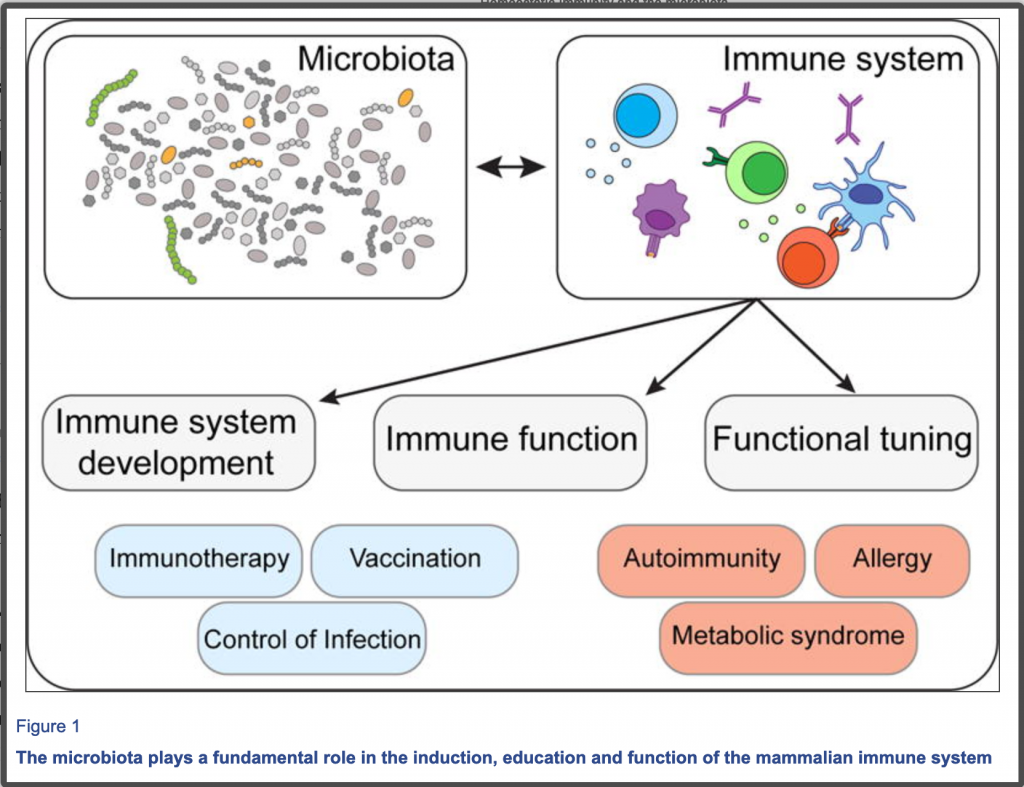
When referring to immunity and the microbiome, the science often focuses on how the microbiota promote and calibrate all aspects of the immune system. However, as this study notes, “the immune system plays a fundamental role in shaping and preserving the ecology of the microbiota,” as well. It’s a symbiotic relationship. While commensals train the immune system and support functional tuning, the immune system supports, protects and preserves the microbiome. This review study looks more closely at this unique relationship.
ABSTRACT/ The microbiota plays a fundamental role in the induction, education and function of the host immune system. In return, the host immune system has evolved multiple means by which to maintain its symbiotic relationship with the microbiota.
The maintenance of this dialogue allows the induction of protective responses to pathogens and the utilization of regulatory pathways involved in the sustained tolerance to innocuous antigens. The ability of microbes to set the immunological tone of tissues, both locally and systemically, requires tonic sensing of microbes and complex feedback loops between innate and adaptive components of the immune system. In this review, the authors highlight the dominant cellular mediators of these interactions and discuss emerging themes associated with our current understanding of the homeostatic immunological dialogue between the host and its microbiota.
Immunity and the Microbiome

Key Concepts about Immunity and the Microbiome
- Control of the epithelial cells by the microbiota.
- Tonic control of hematopoiesis and innate immunity by the microbiota.
- Non-classical lymphocyte interaction with the microbiota.
- Adaptive immunity to the microbiota.
- Control of immune reactivity to the microbiota.
- Induction of regulatory responses by the microbiota.
- Adjuvant properties of the microbiota: a role in infection, vaccine and tumor immunotherapy.
“Given the fact that more than 70% of the human immune system resides in the gut, we are deeply invested in understanding the homeostatic mechanisms as well as identifying the probiotic strains that provide the greatest immune support. These efforts were the foundation for development of Omni-Biotic® Balance: our targeted immune supporting probiotic formulation,” said the Omni-Biotics scientific team in response.
Conclusion/ “Manipulation of microbe function or composition, via diet alteration or microbiota-engraftment, may soon become a viable and therapeutic approach to enhance the efficacy of cancer therapy or to combat life threatening antibiotic-resistant pathogens. Understanding the factors controlling the fundamental dialogue between microbes and the immune system and gradual integration of this dialogue with the nervous and hormonal system will represent an important challenge for the scientific community but also a necessary step in our quest for the next generation of therapeutics.”
Click Here for Full Text Study




